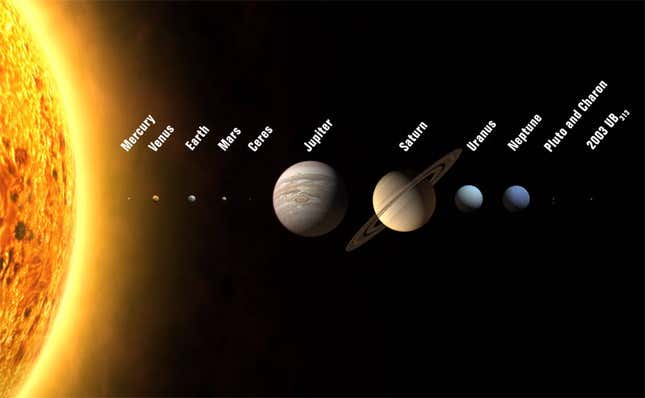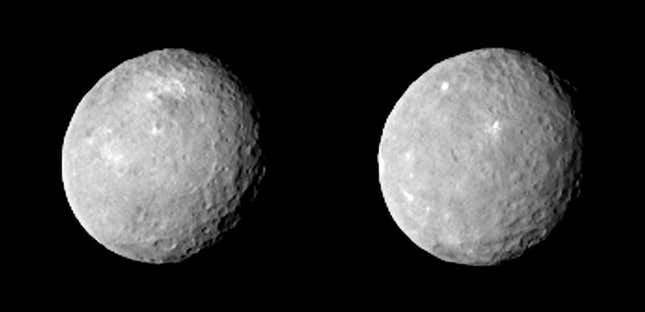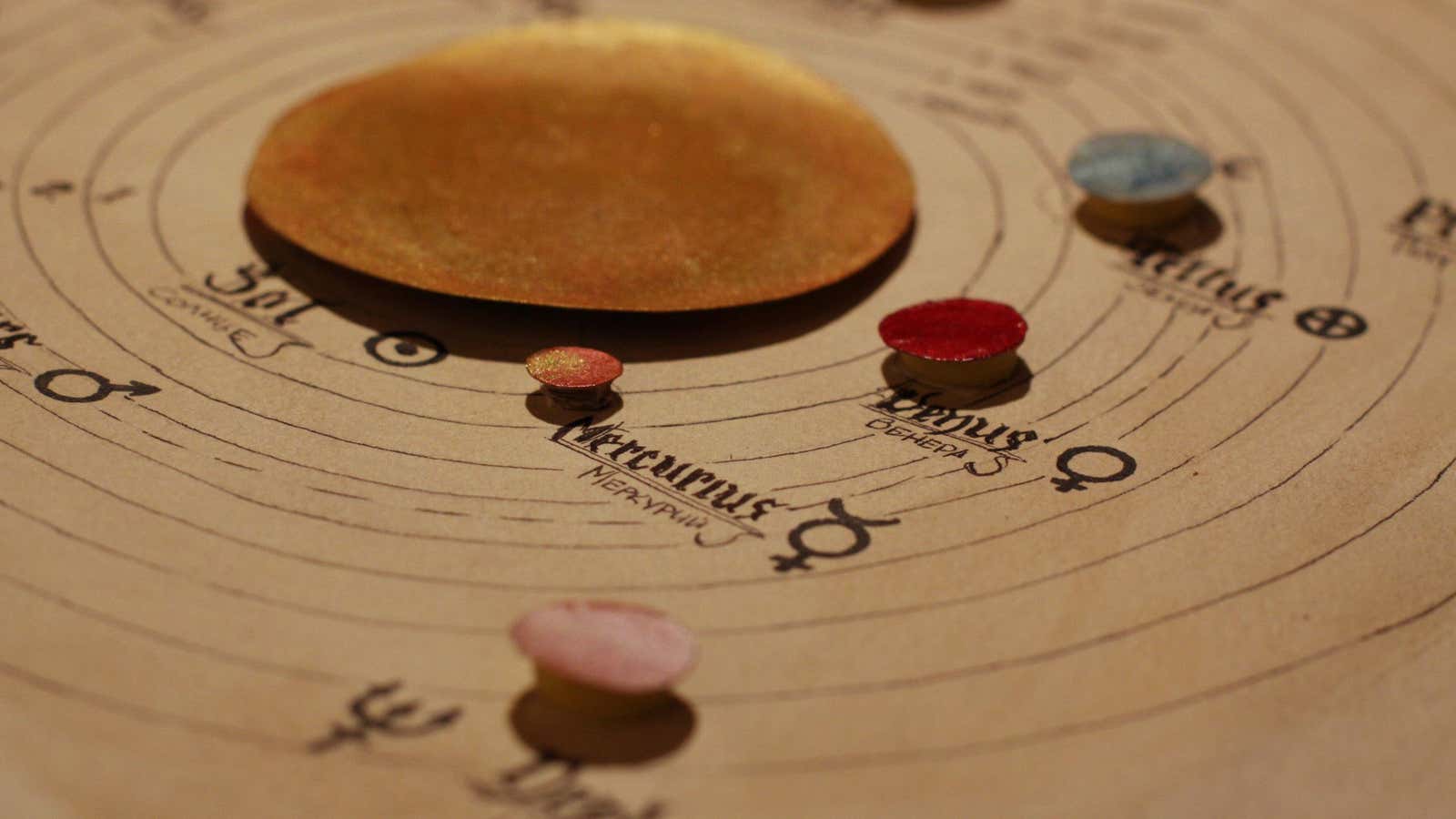In 2006, Pluto lost its status as a planet. It was downgraded to a “dwarf planet,” in fact, a decision that rankled many who had grown accustomed to the solar system containing nine celestial bodies—including Sheldon Cooper from the Big Bang Theory:
There may be a chance to revisit the controversial move again this year. Pluto, the last unexplored planet of any kind in our system, will be reached by NASA’s New Horizons spacecraft on July 15. The information the spacecraft provides will tell us if Pluto is a legitimate planet or merely a very large floating rock in the Kuiper Belt, a row of icy objects found beyond Neptune.
The downgrading of Pluto, discovered in 1930, came via a decision made by a very slim margin by the International Astronomical Union, spearheaded by what Discover magazine calls “Pluto haters.” Only 237 out of 10,000 members of the IAU voted in favor of downgrading Pluto—157 voted against, and the rest were not present.

Another NASA vessel, Dawn spacecraft, is due to arrive at Ceres—the largest asteroid in the belt between Mars and Jupiter—next week, which could result in Ceres being added to our list of planets. Some think Ceres has as much freshwater as Earth. As Dawn approaches Ceres’ orbit on March 6, this is a picture it captured:

Ceres was discovered in 1801 and immediately named a planet before being downgraded the next year. That could change this year—if astronomers can agree on what a planet is.




